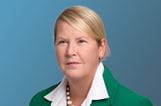On the one-year anniversary of Ukraine invasion, Biden Administration imposes additional sanctions and export controls targeting Russia
Related people




Ken Rivlin
Partner, Global Co-Head Environment, Climate and Regulatory Law Group and the International Trade Group
New York

Maura Rezendes
Partner
Washington, D.C.

Kuang Chiang
Senior Counsel
Washington, D.C.

Nick Ognibene
Associate
Boston

Jake Ely
Associate
New York

Brendan Holman
Associate
New York

Ben Vallimarescu
Associate
Washington, D.C.

Franchesca Verendia
Associate
New York
Headlines in this article
Related news and insights
Publications: 27 March 2024
Increased Focus on Forced Labor in the U.S. and EU: Enforcement and Legislation
Publications: 07 March 2024
Maura Rezendes speaks to Financier Worldwide on sanctions compliance and enforcement
Publications: 28 February 2024
Publications: 27 February 2024
U.S. Imposes New Sanctions and Export Controls Targeting Russia
On February 24, 2023, the one-year anniversary of Russia’s invasion of Ukraine, the United States, in coordination with its G7 partners and other allies, announced a series of additional sanctions and export controls targeting Russia.
In connection with today’s action, OFAC also issued two new Russia-Related General Licenses, two updates or extensions of existing general licenses, and five new FAQs.
Full blocking sanctions
The Office of Foreign Assets Control (OFAC) of the U.S. Department of the Treasury designated over 250 individuals, entities, and vessels on the List of Specially Designated Nationals and Blocked Persons (SDN List, and persons thereon, SDNs) pursuant to Executive Order 14024 (EO 14024). The new designations include:
- A number of Russian financial institutions and wealth management-related entities;
- Actors inside and outside Russia for their involvement in sanctions evasion efforts;
- Nurmurad Kurbanov, an arms dealer, and his company in Cyprus supporting Russia and Belarus;
- Aleksandr Yevgenyevich Udodov, a Russian elite-linked businessman, and his companies in Russia, the Czech Republic, the British Virgin Islands, and the Bahamas, tied to illicit financial activity;
- Russian entities that produce carbon fiber and related advanced materials;
- Entities that operate in Russia’s aerospace sector;
- Entities that operate in Russia’s metals and mining sector (see below);
- Persons operating in Russia’s technology and electronics sectors; and
- Other entities supporting Russia’s war against Ukraine.
As a result of these designations, all property and interests in property of these individuals and entities that are in, or later come within, the United States or the possession or control of a U.S. person are blocked and cannot be transferred, paid, exported, withdrawn, or otherwise dealt in without a general or specific license from OFAC. All transactions or dealings by U.S. persons or within (or transiting) the United States, or by non-U.S. persons involving a nexus with the United States, involving these individuals or entities, or their property or interests in property, are prohibited. These prohibitions include the making of any contribution or provision of funds, goods, or services by, to, or for the benefit of any designated individual or entity and the receipt of any contribution or provision of funds, goods, or services from any such persons. In addition, these prohibitions apply to any entities that are owned, directly or indirectly, 50 percent or more in the aggregate by one or more individuals or entities whose property and interests in property are blocked. OFAC also has the authority to impose blocking sanctions on non-U.S. persons for providing material assistance, sponsorship, financial, material, or technological support for, or goods or services to, or in support of any designated persons.
Metals and mining sector sanctions
OFAC also issued a determination pursuant to Section 1(a)(i) of EO 14024 regarding the metals and mining sector of the Russian Federation economy. This determination authorizes OFAC to impose sanctions on any individual or entity determined to operate or have operated in that sector. OFAC previously issued similar determinations with respect to the quantum computing, accounting, trust and corporate formation, management consulting, aerospace, marine, electronics, financial services, technology, and defense and related materiel sectors of the Russian Federation economy. As a result of this action, OFAC may designate as SDNs any persons, including non-U.S. persons, it deems to be operating in the metals and mining sector of the Russian economy, at any time and without warning.
Pursuant to the metals and mining sector determination, OFAC designated four entities on the SDN List for operating or having operated in the metals and mining sector of the Russian Federation economy.
Additional restrictions on exports to Russia
In addition to the measures announced by OFAC, the Department of Commerce’s Bureau of Industry and Security (BIS) added 86 entities in Russia and third countries, including China, to the Entity List for engaging in sanctions evasion and backfill activities in support of Russia’s defense sector. The Entity List identifies non-U.S. persons “reasonably believed to be involved, or to pose a significant risk of being or becoming involved, in activities contrary to the national security or foreign policy interests of the United States.” Entities and individuals, both U.S. and non-U.S., may not, without prior authorization from BIS, export, reexport, or transfer (in country) specified items, whether made in the United States or with certain U.S. technology or software, to listed persons.
For all 86 entities that were added to the Entity List, BIS imposed a license requirement for all items (i.e., technology, commodities, and software) subject to the Export Administration Regulations (the EAR), which include all U.S.-origin items, items in the United States, and certain items that are produced outside of the United States that incorporate controlled, U.S.-origin content or are manufactured using U.S.-origin technology. 76 of the added entities were also designated as Russian/Belarusian Military End Users, thereby imposing additional licensing requirements for exports, reexports, and transfers to these persons.
Furthermore, BIS:
- Took action to align U.S. export control restrictions on industrial machinery, luxury goods, and other items with measures imposed by the Unites States’ G7 partners and allies; and
- Announced new export control restrictions targeting Iran, including in relation to components found in Iranian drones that have been used by Russia on the battlefield in Ukraine.
More information on these measures can be found on the OFAC website here and in the unpublished BIS final rules here, here, here, and here.
A&O’s Global Sanctions Group has been tracking these developments closely. We will continue to provide further updates on related actions involving the EU, the UK, the Russian Federation, and other key players, as the situation evolves.
For more information, please contact the authors (related people) or your usual contact within our Global Sanctions Group.
